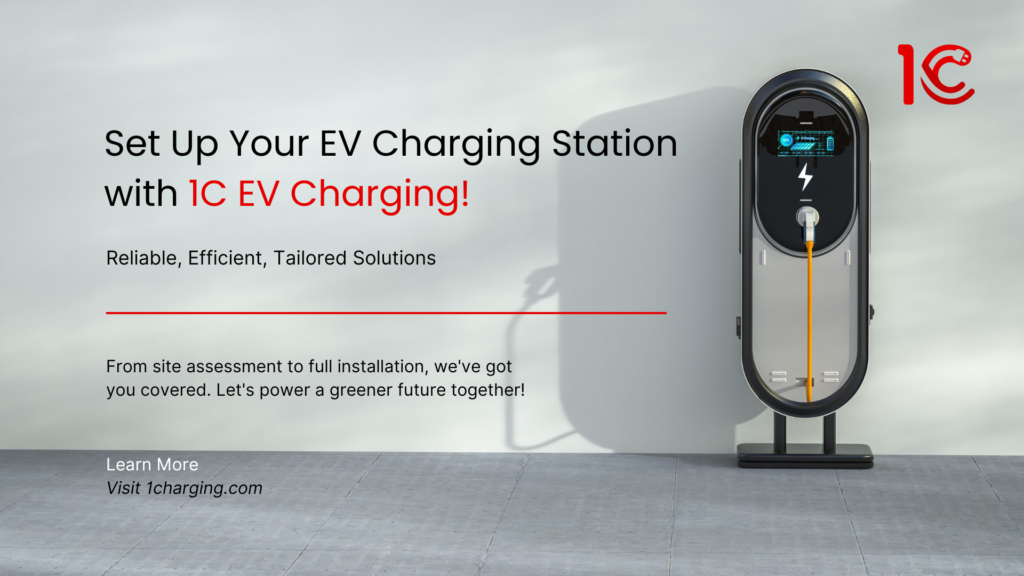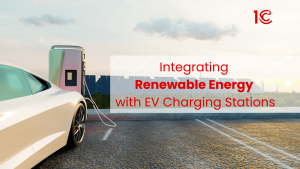The development of electric vehicle (EV) infrastructure is a complex and multifaceted process that requires careful planning and strategic implementation. The following considerations are essential to ensure the success and efficiency of EV infrastructure projects.
Table of Contents
1. Project Development and Scoping
Effective project planning begins with a clear understanding of the project’s scope and scale. Key tasks include:
• Establish Overall Project Scale:
Assess the current and projected number of EVs in the area. This involves demographic studies and traffic pattern analysis to understand how many charging stations are needed and where they should be placed. Like, in a city with a high density of EVs, more charging stations will be required compared to a rural area.
• Determine Site and Installation Type:
Identify suitable locations for charging stations, considering factors such as traffic flow, accessibility, and proximity to amenities. Types of installations include public, private, and workplace charging. Example: Installing chargers in shopping malls and office complexes can cater to daily commuters.

• Identify Project Partners
Collaborate with stakeholders, including government agencies, utility companies, automotive manufacturers, and private businesses, to leverage resources and expertise. E.g., Partnering with local governments can facilitate the installation of charging stations in public areas, while collaboration with automotive companies can ensure compatibility with various EV models.
• Decide on Ownership Model
Choose an ownership model that aligns with your strategic goals, whether it be public, private, or a public-private partnership. A public-private partnership, for instance, can distribute costs and risks while leveraging the strengths of both sectors.
1C offers consulting based on project needs. Fill out the form and reach out to our experts today.
• Assess EV Charging Needs:
Evaluate the specific charging needs of different user groups, such as residential, commercial, and fleet operators. This includes understanding peak usage times and the types of EVs in the area. For example: Fleet charging may require high-capacity chargers that can quickly recharge multiple vehicles simultaneously.

• Identify Needs for Permitting and Regulatory Compliance:
Ensure that all necessary permits and regulatory requirements are met to avoid legal and operational issues. Different regions have varying regulations for EV infrastructure.
• Ensure Accessibility for People with Disabilities:
Design charging stations to be accessible to all users, including those with disabilities. This might include providing wider parking spaces and installing chargers at accessible heights.
2. Utility Planning
Integrating EV charging stations with the local grid infrastructure is crucial for reliable and efficient operation. Key considerations include:
• Assess Local Grid Infrastructure:
Evaluate the capacity of the existing grid to support additional load from EV chargers. This includes understanding the grid’s current load, peak times, and capacity to handle new infrastructure. For instance, upgrading local transformers or adding new substations may be necessary to support high-capacity fast chargers.

• Determine Electricity Rates and Pricing Structures:
Develop pricing models that balance affordability for users with the cost of electricity and infrastructure maintenance. E.g. Dynamic pricing models can encourage off-peak charging, reducing strain on the grid during peak hours.
1C offers solutions for charging infrastructure development. Fill out the form to take your first step.
3. Installation Planning
Proper planning and execution of the installation process are vital for the success of EV infrastructure projects. Key steps include:
• Determine Procurement Process:
Select reliable suppliers and contractors for equipment and installation services. This includes conducting a thorough vendor assessment to ensure quality and reliability. Choosing a supplier with a proven track record in EV infrastructure can mitigate risks associated with equipment failure or delays.
Fill out the form for top-tier EV charger installation tailored to both commercial and residential needs.
• Determine Network Connection Needs:
Ensure strong and secure network connectivity for remote monitoring and management of charging stations. This includes assessing the need for wired versus wireless connections and ensuring cybersecurity measures are in place. Secure and reliable network connections are essential for real-time monitoring and management of charging stations.
• Select Equipment and Network Provider:
Choose high-quality charging equipment and a network provider that offers reliable performance and support. This includes evaluating different types of chargers and their compatibility with various EV models. Example: High-capacity DC fast chargers are ideal for public charging stations, while Level 2 chargers might suffice for residential areas.
1C offers the best quality EV chargers from Top OEMs at affordable prices. Buy EV chargers here.
• Assess Installation Needs and Costs:
Evaluate the installation requirements and develop a detailed budget to cover all expenses, including equipment, labour, and any necessary site modifications. Conducting a cost-benefit analysis can help determine the most efficient and cost-effective installation strategy.
1C offers comprehensive installation services with customised pricing to match your budget needs. Fill out the form and get your charging station installed.

4. Operational Planning
Effective management and operation of EV charging stations are essential for long-term success. Key considerations include:
• Assess Operations and Maintenance Costs:
Develop a maintenance plan to ensure the reliability and longevity of the charging infrastructure. This includes regular inspections, software updates, and prompt repairs. E.g., implementing a proactive maintenance schedule can prevent costly downtime and extend the life of the equipment.
• Determine Pricing, Payment, and Access:
Implement user-friendly payment systems and set pricing that encourages EV adoption while covering operational costs. This includes considering various payment methods and ensuring they are secure and easy to use. Offering multiple payment options, such as mobile apps, RFID cards, and credit/debit cards, can enhance user convenience.
Also Read: Revenue Models for EV Charging Stations
• Consider Additional Needs:
Address any additional requirements, such as customer support and software updates, to enhance the user experience. This includes providing real-time support for users and ensuring that software is regularly updated to address any issues or improve functionality. For instance, a strong customer support system can help address user concerns quickly, enhancing satisfaction and trust in the charging network.
Conclusion
Strategic planning and execution are critical for the successful deployment of EV infrastructure. By addressing demand, integrating renewable energy, planning for scalability, ensuring user convenience, and fostering collaboration, stakeholders can develop a strong and efficient charging network.
1C stands as a leading partner in this journey, offering innovative and comprehensive solutions tailored to meet the diverse needs of the EV ecosystem, ensuring a sustainable and greener future for all.













